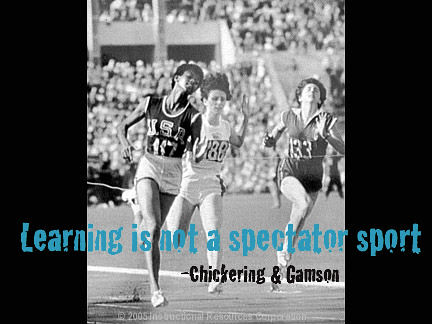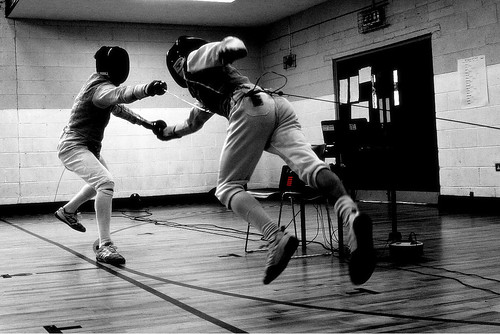[Note: This has been cross-posted from my quotidian truth blog.]
I’ve been reading this book.
And I’ve been thinking about it A LOT.
I can really identify with having a fixed mindset when it comes to sports. I think I need to change this. I’m about 55% through the book (that reference was for you, Alex) and that’s the main area I’ve identified so far that I need to re-think, but it has certainly got me thinking about other areas where perhaps I have a fixed mindset. I need to seriously re-evaluate these areas.
One of the stories that struck me most in this book is the story of Michael Jordan. Before reading this book, I quite honestly had no idea that he was pretty much a crap basketball player when he first started playing. He was cut from the HS Varsity team! He wasn’t recruited by the college he wanted and he wasn’t drafted by the first two NBA teams that could have taken him. He worked his butt off — doing things like practicing for hours after the last game of the season after they had lost; he was preparing for next season (Dweck 85-86).
I remember once getting into an argument with an administrator — a principal at a previous school — about professional growth. I had started the argument, because I was really miffed that an entire year had gone by and I had not participated in any formal professional development activities. My then-principal told me that there would be times in my career when sometimes I just needed to sit back and slide through, that I didn’t always need to be reaching for something bigger and better. He told me that maybe one day when I had a family I would understand (which I found interesting because he himself didn’t have a family). He said that I really just needed to “sit tight” for the time being and coast for a bit, and that that was okay, that I didn’t always need to be “so ambitious.”
This man clearly did not know me well.
I told him that I couldn’t ever — ever! — imagine plateauing in my career, that I didn’t think that way about being an educator, that I never wanted to coast, and that I was dedicated to always wanting to become better. I told him I would be going to a conference that year whether the school paid for it or not.
(And I did. And the school did end up paying for it, thankfully. But I was fully prepared to go on my own coin that year.)
He still argued with me. I remember him muttering something about how I’d been teaching long enough that I should know that there’s really a limit to what you can know about being a teacher, and that after a while it all is the same, anyway.
He had a fixed mindset.
I, thankfully, did not. And I daresay it’s the reason I’m a better teacher now than I was then, several years ago now.
Dweck tells the story of the one time Michael Jordan decided to coast, the year he returned to basketball after trying out baseball, “… and he learned his lesson. The Bulls were eliminated in the playoffs.”
You can’t leave and think you can come back and dominate this game. I will be physically and mentally prepared from now on.
(Michael Jordan, in Dweck 99)
The question I’m ruminating over now — and it may well be a question I spend my lifetime thinking about — is this: how can I transfer the growth mindset that I have about being an educator to other areas of my life? How can I continually keep growing, developing, and learning as a human being?
I have a lot of work to do.




